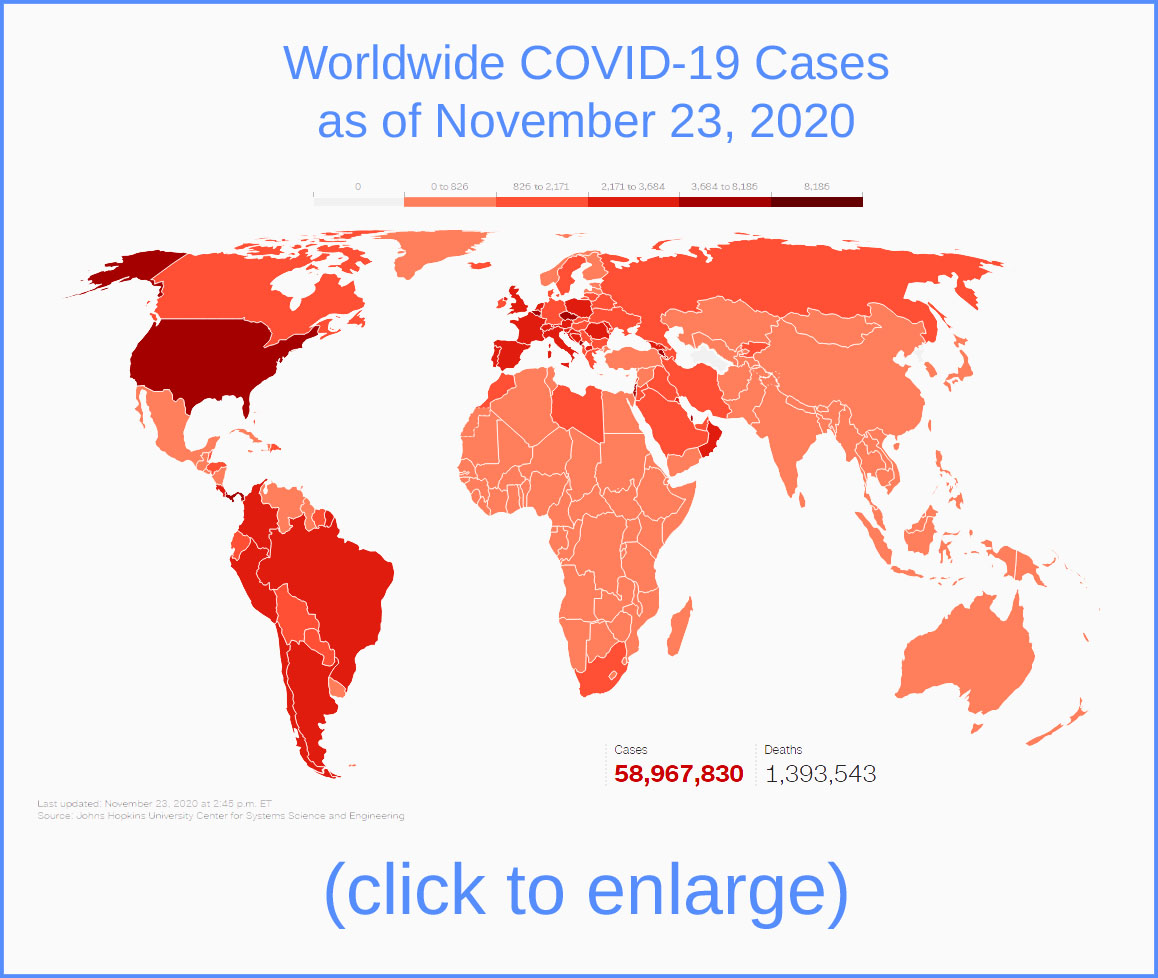
What Is COVID-19 (coronavirus)?
COVID-19, the novel (new) coronavirus, is an infectious disease which has spread quickly around the globe in 2020, with approximately 59 million people known to have become infected and over 1.4 million fatalities as of November 23, 2020.
The World Health Organization (WHO) declared COVID-19 a pandemic on March 11, 2020. A pandemic is declared when a new disease for which people do not have immunity spreads around the world beyond expectations.
▶︎ As of November 2020, there has been encouraging recent news about coronavirus vaccines, with some successful trials reported. LEARN MORE
The lungs are the organs most affected by COVID-19. Common symptoms of COVID-19 include fever, cough, fatigue, and shortness of breath. These symptoms may appear 2-14 days after exposure, according to evolving information from the CDC.
While the majority of cases result in mild symptoms — and in some cases no symptoms at all — some progress to pneumonia and multi-organ failure. Deaths per number of diagnosed cases is currently estimated at between 1% and 5%, but varies by age and other health conditions.
▶︎ VIEW LATEST CORONAVIRUS UPDATES FROM THE CDC
How Does COVID-19 Spread?
The virus is thought to spread mainly from close person-to-person contact (within about 6 feet), according to the CDC. "It can spread through respiratory droplets produced when an infected person coughs or sneezes. These droplets can land in the mouths or noses of people who are nearby or possibly be inhaled into the lungs."
It may be possible that a person can get COVID-19 by touching a surface or object that has the virus on it and then touching their own mouth, nose, or possibly their eyes, but this is not thought to be the main way the virus spreads.
How To Protect Yourself and Others
Based on evolving information from the CDC, Optimal Health Network wants you to do everything you can to minimize potential exposure to COVID-19, strengthen your immune system, and stay healthy. This is not only to protect yourself, but also as a critical public service to your community at large, especially to those more vulnerable (those over age 60 and/or those with severe chronic medical conditions such as lung disease, heart disease, or diabetes).

In order for our healthcare infrastructure not to become overwhelmed with new COVID-19 cases, slowing the spread is in everyone's interest, therefore we must behave as selflessly as possible, and without delay!
▶︎ LEARN MORE: What does "flattening the curve" mean?
▶︎ VIEW LATEST CORONAVIRUS UPDATES FROM THE CDC
To assist you in protecting yourself, your loved ones, and the larger community from COVID-19 illness, OHN has prepared the following list of recommended actions, protocols, support products, and resources. Please read through this potentially life-saving information carefully and take it to heart!
 If you are sick, stay home except to get medical care.
If you are sick, stay home except to get medical care.
Per the CDC, if you are mildly ill with COVID-19, you should make every effort to isolate yourself at home during your illness. Restrict activities outside your home, except for getting medical care. Do not go to work, school, or public areas. Avoid public transportation, ride-sharing, and taxis.
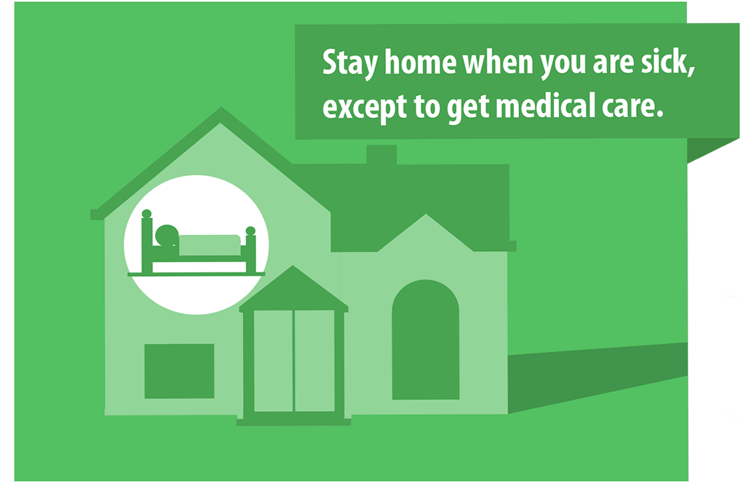
As much as possible, you should stay in a specific room and away from other people in your home. Disinfect all shared surfaces. Use a separate bathroom if available.
Call ahead before visiting your doctor. If you have a medical appointment, call your healthcare provider and tell them that you have or may have COVID-19. This will help the provider's office take steps to keep other people from getting infected or exposed.
Explore telehealth options (virtual appointments) when feasible.
The CDC states: "Older adults and people who have severe underlying chronic medical conditions such as heart or lung disease or diabetes seem to be at higher risk for developing more serious complications from COVID-19 illness. Please consult with your health care provider about additional steps you may be able to take to protect yourself."
▶︎ If You Are Sick: More Information from the CDC
 Maintain social distance and follow good respiratory hygiene.
Maintain social distance and follow good respiratory hygiene.

Avoid public areas and events as much as possible. Work from home if possible. Avoid close contact with people who are sick. Put distance between yourself and other people if COVID-19 is spreading in your community. This is especially important for people who are at higher risk of getting very sick.
In public areas, maintain at least 6 feet (roughly 2 meters) of distance between yourself and others, especially anyone who is coughing or sneezing.
In public areas, particularly indoor spaces where maintaining physical separation may not be possible at all times, wear a mask if possible. According to the CDC, wearing a mask primarily serves to protect others from you if you are carrying the coronavirus but do not realize it.
Follow good respiratory hygiene, especially if you are unable or unwilling to wear a mask. This means covering your mouth and nose with your bent elbow or tissue when you cough or sneeze. Dispose of used tissue immediately.
Avoid shaking hands or hugging. Greet people with a wave, nod, or bow instead.
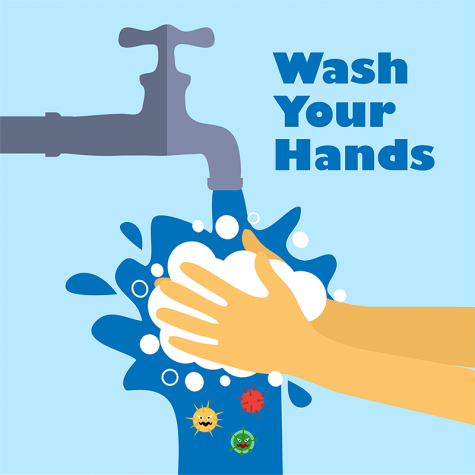
 Wash your hands often and thoroughly.
Wash your hands often and thoroughly.
First and foremost, whether it's COVID-19, flu, or other contagious illnesses, one of the most effective, common-sense ways to reduce your chances of getting sick is to wash your hands often (and the right way) throughout the day.
Properly washing your hands is especially important at key times when you are likely to receive or spread germs, such as before, during, and after preparing food; after using the toilet; and after blowing your nose, coughing, or sneezing.
Wet your hands with clean, running water (warm or cold). Lather your hands by rubbing them together with soap. Lather the backs of your hands, between your fingers, and under your nails. Scrub your hands for at least 20 seconds. (Sing the "Happy Birthday" song or one of these alternatives twice from beginning to end as a timer.)
To reiterate, scrub your hands for at least 20 seconds.
▶︎ Learn more about hand washing from the CDC
 Use hand sanitizer when soap and water are not available.
Use hand sanitizer when soap and water are not available.

The CDC recommends using a hand sanitizer which is at least 60% alcohol.
When using hand sanitizer, apply the product to the palm of one hand (read the label to learn the correct amount) and rub the product over all surfaces of your hands until they are dry.
Supervise young children when they use hand sanitizer to prevent swallowing alcohol, especially in schools and childcare facilities. Swallowing alcohol-based hand sanitizers can cause alcohol poisoning. Why? Ethyl alcohol (ethanol)-based hand sanitizers are safe when used as directed, but they can cause alcohol poisoning if a person swallows more than a couple of mouthfuls.
▶︎ Learn more about hand sanitizers from the CDC

 Avoid touching your mouth, nose, and eyes!
Avoid touching your mouth, nose, and eyes!
Most of us touch our faces much more than we realize. It tends to be a deeply ingrained behavior in many circumstances and with many triggers, and therefore can be difficult to recognize and overcome, requiring a high level of self-awareness.
However, the effort is well worth it! Succeeding in not touching your face can significantly reduce your chances of acquiring viruses.
Touching the mucous membranes on your face (eyes, nose, and mouth) with unwashed hands potentially allows agents that cause respiratory infections to enter the body, including COVID-19 (coronavirus).
 Don't underestimate the value of sleep. Get enough if you can!
Don't underestimate the value of sleep. Get enough if you can!

According to the CDC, more than a third of U.S. adults do not get the recommended amount of sleep on a regular basis.
Numerous studies have shown a link between inadequate sleep and impaired immune system function.
The coronavirus pandemic just might be a perfect opportunity to truly catch up and even indulge in sleep. Make quality sleep a priority if possible!
 Support your immune system with appropriate herbs and supplements.
Support your immune system with appropriate herbs and supplements.
Standard Process, Researched Nutritionals, and Ortho Molecular offer product lines designed to maximize a healthy immune response to viral threats. Our diets do not always give us the breadth and dosage of vitamins and nutrients we need to keep our bodies as healthy as possible. Therefore, taking the right immunity-boosting formula on a daily basis may benefit your long-term health.
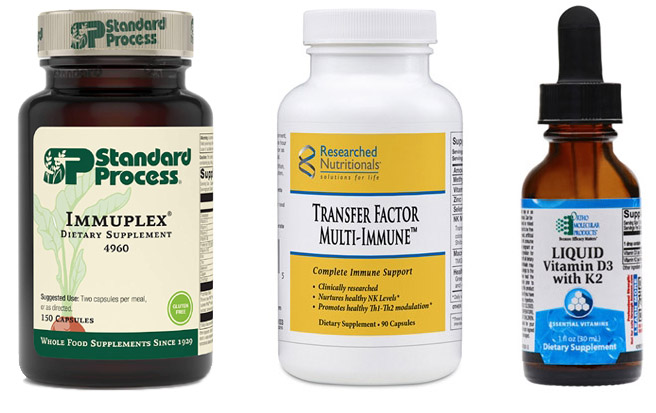
I trust and recommend the following immune support supplements:
- Immuplex® - Immuplex blends essential micronutrients and minerals as well as Protomorphogen™ and Cytosol™ extracts to support the immune system.
- Echinacea Premium - Echinacea Premium combines the roots of Echinacea angustifolia and Echinacea purpurea to enhance healthy immune system function.
- Transfer Factor Multi-Immune - Multiple clinical studies of this advanced immune support formula have indicated a positive impact on natural killer cell function, which is the front line of the immune system. The complexes and minerals in this product promote an optimal response to viral assaults.
- C-RLA Liposomal Vitamin C - Taking vitamin C regularly can help prevent some people from getting sick, and can shorten the amount of time it takes for you to recover. Each serving of this product contains 1500 mg of vitamin C, and its liposomal preparation allows for more efficient absorption than non-liposomal oral vitamin C.
- IgG Protect - IgG Protect is a highly concentrated (40%) immunoglobulin G (IgG) formula that provides essential nutrition for improved immune health.
- Imu-Max - Imu-Max is a children’s formula that boosts immune function and provides support for immune challenges. Imu-Max contains echinacea, one of the best-known botanicals used to boost the immune system, and propolis, a product of bee resin, which helps maintain normal inflammatory balance.
- Buffered C Capsules - These capsules are balanced with calcium, magnesium, and potassium to gently deliver high-concentration vitamin C to reduce the potential of gastrointestinal upset.
- Liquid Vitamin D3 with K2 - Recent research has revealed the synergistic relationship between vitamin D3 and vitamin K2. When combined, this pair of vitamins are beneficial to bone strength, cardiovascular health, and immune health. Vitamin D can modulate the innate and adaptive immune responses. Deficiency in vitamin D is associated with increased autoimmunity as well as an increased susceptibility to infection. Adding 1 or more drops of this vitamin supplement to your beverage of choice daily will help support your body's immune function and your overall health.
▶︎ How To Order Standard Process Products
▶︎ How To Order Ortho Molecular Products
 Use appropriate essential oil blends as support tools.
Use appropriate essential oil blends as support tools.
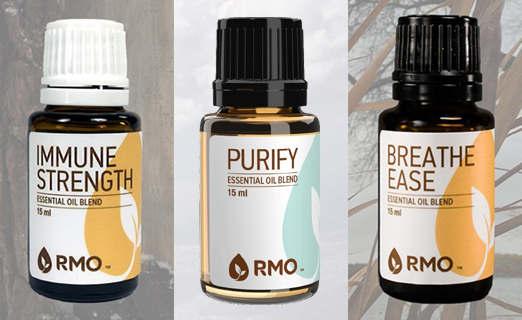
Certain essential oils can be used not only to boost your immune system to help prevent illness, but also to aid in recovery if you're already sick.
Diffusing essential oil blends such as Rocky Mountain Oils Breathe Ease in your home can assist the respiratory system to expel mucus when you have a cold or flu.
- Breathe Ease ingredients: Eucalyptus globulus, Eucalyptus radiata, myrtle, Eucalyptus citriodora, peppermint, spruce, ravintsara, pine, and sweet marjoram essential oils
Essential oil blends such as Rocky Mountain Oils Immune Strength and Purify can help to strengthen your immune system and also assist in cleaning the air in your home.
- Immune Strength ingredients: clove bud, cinnamon bark, lemon, orange, oregano, red mandarin, thyme, ajowan seed, rosemary, nutmeg, ginger root, and Eucalyptus citriodora essential oils
- Purify ingredients: lemongrass, tea tree, rosemary, lavender, myrtle, and citronella essential oils
Diffuse daily and/or apply a couple of drops of one of these oil blends to the bottom of your feet in the morning and/or evening.
You can also add 5-10 drops of one of these blends to the third enema in my recommended home enema series for further immune support.
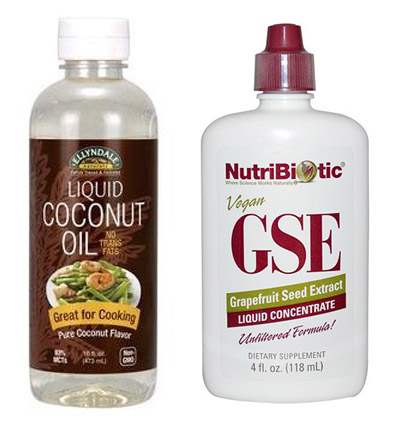
 Keep your home and workspace clean.
Keep your home and workspace clean.
Keeping your home and workspace environments (in addition to yourself!) clean can help strengthen your immune system to fight off viruses.
▶︎ CDC: Cleaning and Disinfection Guidelines for Households
In addition to the CDC's general guidelines above, both Immune Strength and Purify essential oil blends can optionally be added to DIY cleaning products to help clean and sanitize your counters, sinks, and other frequently trafficked surfaces which tend to harbor germs.
If you don't own a diffuser, you can instead add 30-40 drops of Immune Strength or Purify, 2 tablespoons of witch hazel, and 1 teaspoon of liquid coconut oil to two cups of water in a spray bottle to help clean the air in your home or workplace.
Grapefruit Seed Extract (GSE) can make a great natural all-purpose cleaner and sterilizing agent. GSE is antibacterial, antiviral, and antifungal. Add 20 drops of GSE to two cups of water in a spray bottle, and you'll have an excellent household cleaner.
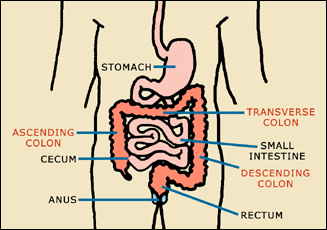
 Maintain a healthy gut microbiome.
Maintain a healthy gut microbiome.
One key factor in maintaining a healthy immune system is maintaining a healthy gut microbiome.
Taking my recommended home enema series regularly as well as eating probiotic-rich foods (e.g., yogurt, kefir, cultured buttermilk, sauerkraut, kombucha) and taking a daily probiotic will help you to optimize the bacterial balance in your colon.
Furthermore, the coffee enema (step 3 of my recommended enema series) helps to remove harmful toxins from your body that can weaken your immune system and make you sick.
▶︎ View Home Enema Instructions
▶︎ Browse Coffee Enema Products
 Consider following my Ten Days to Optimal Health diet.
Consider following my Ten Days to Optimal Health diet.

It is very beneficial for your health, especially during cold and flu season, to reduce or eliminate consumption of foods that generally increase inflammation in your body and weaken your immune system. This includes sugar, gluten, and processed foods.
My recommended Ten Days to Optimal Health diet will guide you to primarily eat vegetables, proteins, and healthy fats, which will help your body stay as healthy as possible.
To learn more about this diet, read my book, Ten Days to Optimal Health, or check out this article.
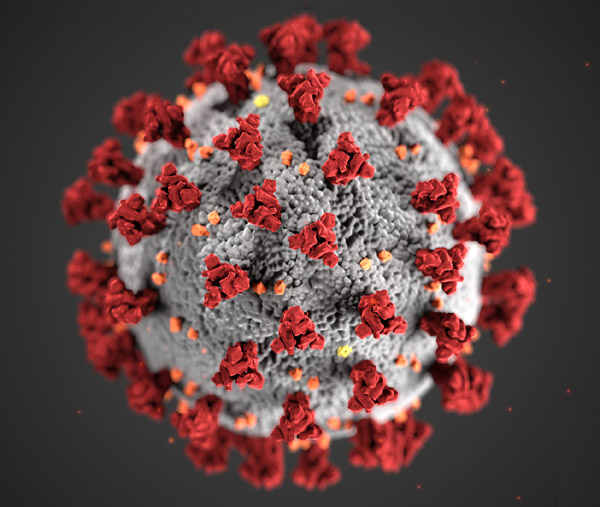
Summary
▶︎ If you are sick, stay home except to get medical care.
▶︎ Maintain social distance and follow good respiratory hygiene, including wearing a mask in public areas if possible.
▶︎ Properly washing your hands at key times and avoiding touching your face as much as possible are two of the most important measures you can take to avoid catching or spreading a virus or disease.
▶︎ Get enough sleep if you can!
▶︎ Additional measures to help you boost your immune response to viral threats include taking supplemental vitamins and nutrients, keeping your home and work environments as clean as possible, using appropriate essential oils as support tools, maintaining a healthy gut microbiome, and reducing or eliminating inflammatory foods.
▶︎ VIEW LATEST CORONAVIRUS UPDATES FROM THE CDC
DISCLAIMER: Optimal Health Network offers the advice above to help you optimize your immune system and avoid contagious illness. We make no claim or guarantee for cure or relief of any specific symptom, medical condition, or disease when using any of these products or protocols. DO NOT attempt to self-diagnose or self-prescribe any natural substances for health conditions that require professional attention.